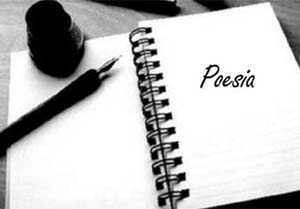 |
|
 |
|
| Visite: 1778 | Gradito: |
Leggi anche appunti:Tonio Kroeger· VITA - ARTE · Evolversi EpicaEpica Da = parola Poesia Recensione di "Siddharta", Herman HesseRecensione di "Siddharta" Herman Hesse Da Demian a Harry Haller; da Baccadoro |
 |
 |
Jude the Obscure - T.Hardy
"You are Joseph the dreamer of dreams, dear Jude, and a tragic Don Quixote. And sometimes you are St Stephen, who while they were stoning him, could see Heaven opened. O my poor friend and comrade, you'll suffer yet!"
 Introduction
IntroductionThomas Hardy was born of humble parents near Dorchester, in 1840. As a boy he was a voracious reader and when he left school in 1856, he was apprenticed to a local architect and church restorer. By 1862, when he started writing poetry, he was studying architecture in London. This experience will be important and influencial for his writings, especially for Jude the Obscure.
He started his career as a novelist in 1872, with Under the Greenwood Tree, but he gained his fame with Far from the Madding Crowd. Other famous novels are The Woodlanders and Tess of the D'Ubervilles.
Serialized in Harper's New Monthly Magazine from 1894 to 1895, Jude the Obscure was the last of Hardy's novel, who was shocked by the accusation of blasphemy he recieved and decided to give up with fiction. The novel was publicly burnt by the Bishop of Exeter and became known as Jude the Obscene.
 Most of Hardy's novels
are set in the south-west corner of England, an area that the novelist calls
Wessex. It is neither imaginary nor real: Wessex is a mixture of both, with
real cities and villages next to fictious ones.
Most of Hardy's novels
are set in the south-west corner of England, an area that the novelist calls
Wessex. It is neither imaginary nor real: Wessex is a mixture of both, with
real cities and villages next to fictious ones.
He had an accurate knowledge of country traditions, wich are important in every one of his novel and the inhabitants of these villages have the function of the chorus of the Greek tragedy. They interpret and comment the actions of the main characters.
Nature is presented as a sort of "co-protagonist", a clear reference to Romanticism and to Shelley's Epipsychidion in particular. But Hardy is a determinist, deeply influenced by Darwinism and believes that Romanticism is inconcievable in modern society. Jude the Obscure gives perhaps the most shocking example of the novelist's theory.
The Novel traces the downfall of Jude Fawley, a lower-class laborer who dreams of becoming a scholar. Yet everything around him conspires to prevent him from achieving his ambition. He is trapped by the class he belongs to, by his marriage to a woman he does not love and by his own sexual desires.
Jude dreams to emulate his former school teacher, Philloston, that he sees as a model of intelligence and knowledge. He studies Greek and Latin in his free time and he works as a stone-mason. After being trapped in a marriage to Arabella Donn, who leaves him two years later, he moves to Christminster, fictional city inspired by Oxford, where he hopes to fulfil his dream. But there he discovers that the University is not the place he thought it was. He is refused.
"Judging from your description of yourself as a working-man, I venture to think that you have a much better chance of success in life by remaining in your own sphere" writes the Master of Biblioll College.
 In the meantime, Jude
meets his cousin Sue Bridehead and falls in love with her, but she marries with
Philloston, after becoming a teacher assistant. She discovers with horror what
marriage really is and she is disgusted by her husband. Philloston, desperate
to make her happy, leaves her go with Jude.
In the meantime, Jude
meets his cousin Sue Bridehead and falls in love with her, but she marries with
Philloston, after becoming a teacher assistant. She discovers with horror what
marriage really is and she is disgusted by her husband. Philloston, desperate
to make her happy, leaves her go with Jude.
Jude and Sue, free from their marriages, decide not to marry and their situation as unwed couple make them outcasts. They start a nomadic life, but the situation is always the same and they start to have economic problems. Jude discovers that he had a child from his previous marriage, Father Time and Sue bears him a son and a daughter.
 They return to
Christminster, where they are treated coldly and the situation becomes tragic.
Jude loses his job and it's hard to find a lodging for them. Sue is pregnant
and Little Father Time decide to kill his little brother and sister and to hang
himself.
They return to
Christminster, where they are treated coldly and the situation becomes tragic.
Jude loses his job and it's hard to find a lodging for them. Sue is pregnant
and Little Father Time decide to kill his little brother and sister and to hang
himself.
Sue loses her baby, turns herself to religion and leaves Jude. She returns to Philloston and they marry again. The Church and the Society think that things came back to normality, on the contrary, Jude defines the marriage as a "fanatic prostitution". He accepts to remarry Arabella, but, alcoholic and sick, dies soon after.
Hardy is inclined to see marriage with cynicism, especially because he was conscious of the situation of women, heavily disadvataged by the laws of nature.
There are no happy marriages in the book. Jude, when married to Arabella, feels trapped in a hopeless situation. He knows that the earthly and practical woman does not suits him. When he remarries her, he is drunk and, anyway, he does not care anymore.
 Sue's marriage to Philloston is
another example of disaster. She does not realizes the enormity of the step she
has taken. Barely a month later she admits that perhaps the event was rashed.
When she goes back to Philloston, after her "conversion", the decision is part
of her personal plan to expiate her ipotethicals sins and marriage is seen as a
punishment.
Sue's marriage to Philloston is
another example of disaster. She does not realizes the enormity of the step she
has taken. Barely a month later she admits that perhaps the event was rashed.
When she goes back to Philloston, after her "conversion", the decision is part
of her personal plan to expiate her ipotethicals sins and marriage is seen as a
punishment.
Sue is the loudest critic of matrimony in the novel. She calls it a "sordid contract" and a "hopelessy vulgar" institution. Her major fear is that "an iron contract should estinguish" all tenderness between Jude and her. The apotheosis of this view is underlined in this passage: "the flowers in the bride's hand are sadly like the garland which decked the heifers of sacrifice in old times".
Hardy also raises some valid criticism of the overly rigid attitude of society towards the unconventional and the unmarried. Philloston charity in letting Sue go scandalizes the school authorities and his carrier is ruined. The same happens when the neighbors discover that Sue and Jude are unwed: they cold-shoulder them and Father Time is taunted at school. Society is vindictive and intolerant on those who deviate from its codes.
Jude the Obscure intensifies the despair of the previous novels. There is no hope for Jude and Sue. Their Romantic ideals are so strongly linked to their personalities and so anthitetical to their society that they are better off dead than living in this world.
The tone of the novel is much darker, bitter and cynical than any other Hardy's work. It expresses a tragic vision, as voiced by Sue: "it seems such a terribly tragic thing to bring beings into the world".
The theme of suicide is present throughout the novel, even if not always in a direct way.
After the disappointment of his first marriage, Jude, who hears of his mother suicide, wants to imitate her. He steps on a large frozen pond, jumping up and down on the ice, trying to crack it and drown. But the ice is too much solid and Jude interprets this as a sign. He thinks he is meant to be a student in Christminster, but the author comments "he was not a sufficiently dignified person for suicide. Peaceful death abhorred him as a subject".
Even the result of the unions of the main character with his "wives" are lost through suicide. One of the most guesome and touching passage of the novel is the death of the children. Little Father Time is certainly one of the most hopeless and death-embracing figures in literature. Convinced by Sue that there is no worth living and that they are too many, he preceeds to hang both of his younger siblings and himself. He leaves a piece of paper on which he wrote: "Done because we are too menny".
The doctor tells Jude that Father Time is a true child of the age, children whose lives, stunted by poverty or disease, had aquired a gravity beyond their years. He represents "the beginning of the coming universal wish not to live".
The third example of suicide comes right after the death of the children. Sue decides to turn herself to religion and to her previous marriage, which she sees as a punishment for her sins. She denies everything she believed in before and anhilate her "modern-self", reinserting herself in what it seems to be the "respectable society" and, in fact, killing her true self.
Despite what some literary critics wrote of Jude, defining him "catatonic", he is the only character that does not commit a psycological or physical suicide: he lives his pain to the fullest, leaving life only when he is crushed by it.
 |
| Appunti su: |
|
| Appunti Grammatica |  |
| Tesine Inglese |  |
| Lezioni Poesia |  |